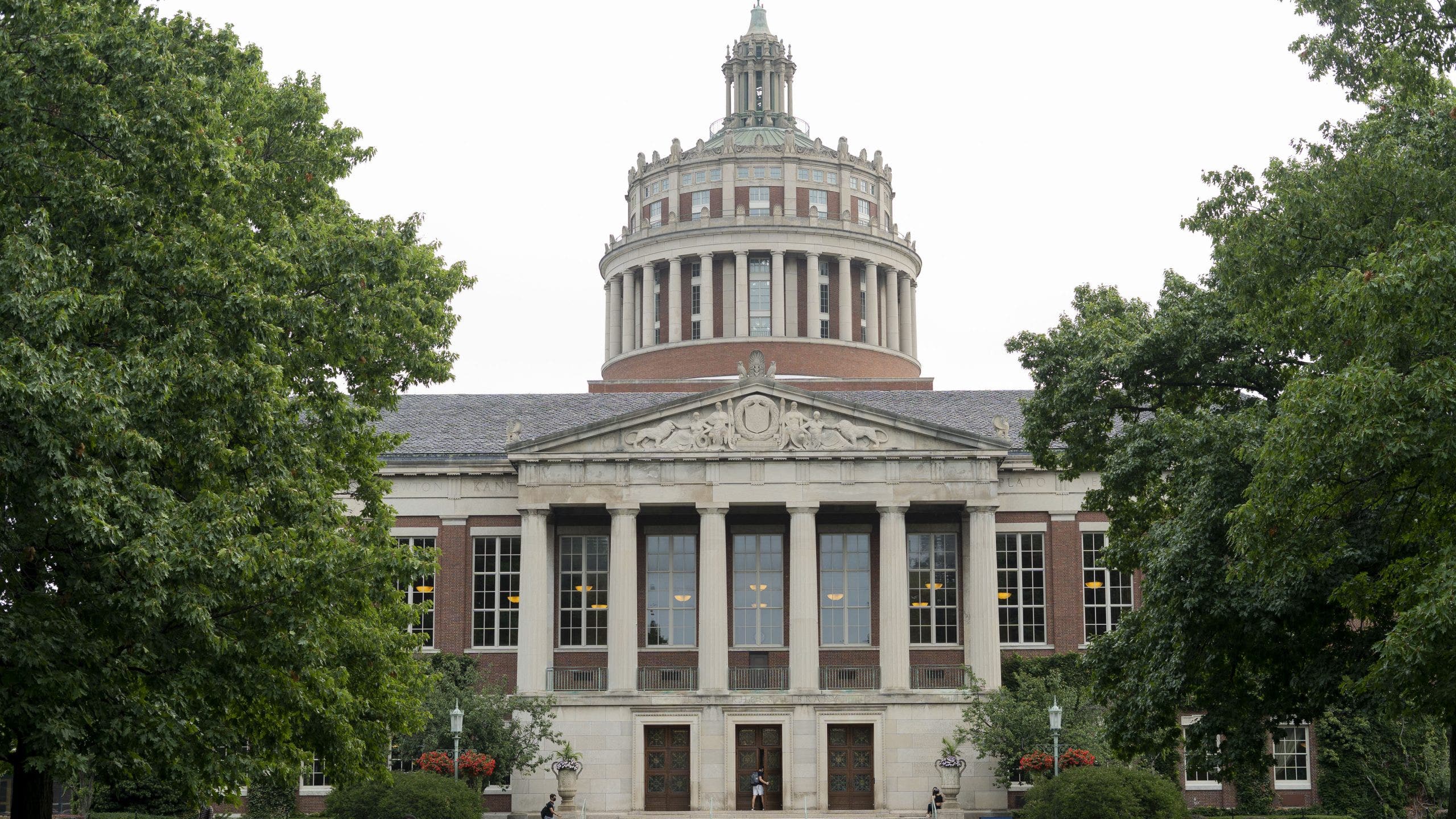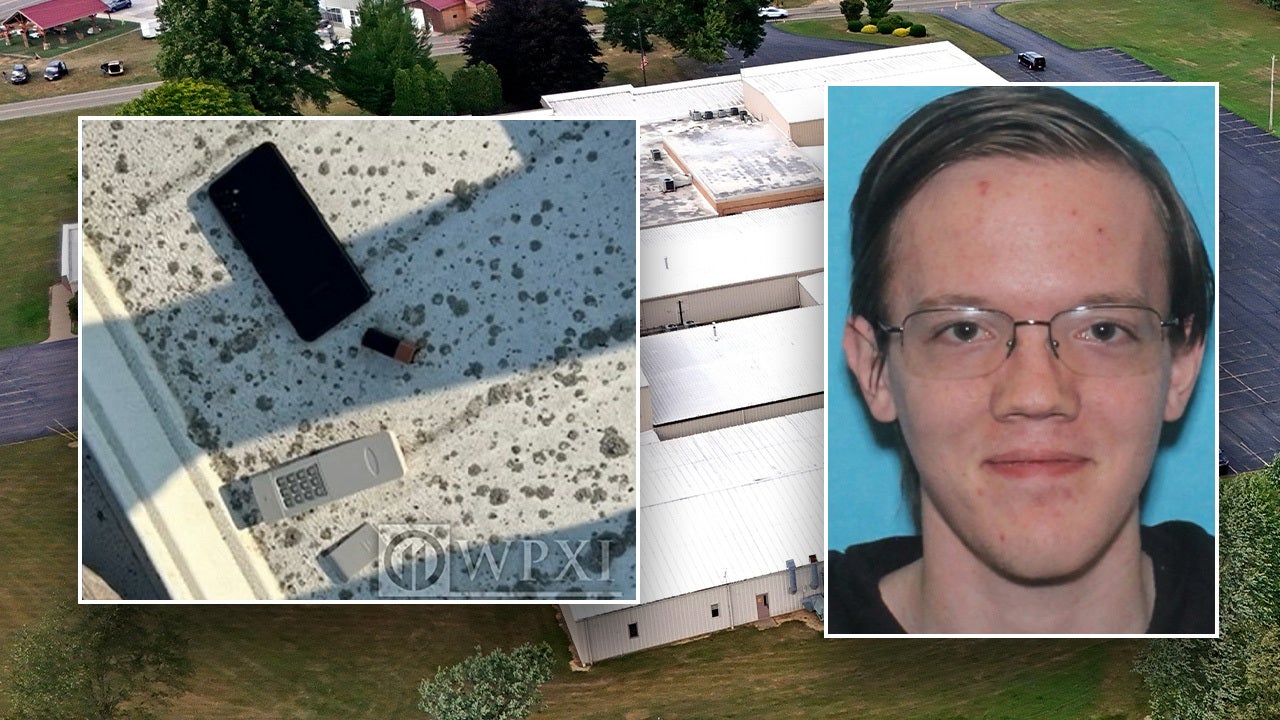Joe Perez is exactly the type of voter President Biden and former President Donald J. Trump are fighting over: A 22-year-old Hispanic man in Las Vegas who grew up leaning Republican, he also supports abortion rights and was turned off by the Capitol rioters on Jan. 6, 2021.
But Mr. Perez — unenthusiastic about a Biden-Trump rematch, overwhelmed by the news and disillusioned by politics — is tuning out.
“If you ask me right now what’s going on with, like, the presidential race, or the situation in Gaza or Ukraine or whatever, I don’t think I can answer,” said Mr. Perez, who supported Mr. Trump in 2020 and is intrigued by Robert F. Kennedy Jr. now. “I’m not trying to follow that anymore.”
Instead, said Mr. Perez, a valet who hopes to become a firefighter, “I’m just going to have to roll with the punches, because I don’t think I’m going to make a difference.”
In fact, people like him could be quite important.
Politically disengaged Americans are emerging as one of the most unpredictable, complex and potentially influential groups of voters in the 2024 race. They are fueling Mr. Trump’s current polling leads but in many cases hail from traditionally Democratic communities, giving Mr. Biden a chance to win some of them back — if he can get their attention.
No shortage of events could jolt alienated voters over the next five months, starting with a verdict in the first criminal trial of a former president in American history, which could arrive this week. Even though many of these people are historically infrequent voters, those who do cast ballots could make the difference in an inevitably close race.
But reaching them is a problem. Campaigns up and down the ballot are operating in an ever-more-fragmented media landscape where misinformation thrives — spread especially by Mr. Trump and his allies — and basic facts are often ignored, disputed or filtered through a partisan lens.
“People have really separated into their own information cul-de-sacs,” said former Representative Stephanie Murphy, a Florida Democrat. “It’s harder now to reach people than it was in previous elections because of that disaggregated or decentralized information network.”
Low-information voters are hardly a new phenomenon: Landmark studies dating back nearly 80 years have found that the public is often uninformed on key issues.
And many Americans are indeed following this contest.
A Gallup survey released this month showed that 71 percent said they had given “quite a lot” of thought to the upcoming presidential election, in keeping with findings around this time in 2020 and 2008.
‘People out here are struggling’
Voters who are paying less attention, pollsters say, tend to be younger or more working-class, and are more likely to engage late in the race, if they do at all.
“It’s not that politics is unimportant to them, but they have other priorities,” said Whit Ayres, a veteran Republican pollster. “Turning out the low-information voters who favor your candidate is one of the major tasks of political consultants.”
An NBC News poll conducted last month found that 15 percent of voters surveyed said they did not follow political news closely. Among those voters, Mr. Trump had an edge of 26 percentage points over Mr. Biden.
By contrast, among voters who primarily consume news through newspapers, national network and cable news — 54 percent of those surveyed — Mr. Biden was up by 11 points.
Mr. Trump’s commanding lead among the politically disengaged underscores how hard it may be for Mr. Biden to translate his record and vision into a galvanizing and attention-grabbing message for these voters, some of whom are firmly committed to Mr. Trump.
But some Democrats also see an opportunity.
“A single piece of information might have a radical impact on them, because they are by definition low-information,” former Mayor Bill de Blasio of New York said.
Pointing to subjects like Mr. Trump’s record on abortion rights or Mr. Biden’s work to lower the cost of insulin for older people, he added: “That doesn’t take a lot of explaining. It takes focusing people, it takes jolting them, but these are not complex points to get across.”
Mr. Trump also remains unpopular, and Democrats are betting that he will grow weaker as more voters see reminders of what they disliked about him.
Republicans, however, note that most Americans drew conclusions about Mr. Trump and Mr. Biden years ago — and that many voters are not following the former president’s provocations closely.
“Trump, I think he gets up there and talks a lot of stuff,” said Carla Williams, 50, of Detroit.
But Ms. Williams, who said she was often too busy with her work at an auto factory and a hotel to follow the news closely, said she was considering him anyway. She faulted Mr. Biden, whom she said she supported in 2020, for the high cost of living.
“People out here are struggling,” she said. “Everything is expensive.”
For voters who pay less attention to the news, “short-term forces” tend to play a dominant role in their thinking about politics, said Christopher H. Achen, an emeritus professor of politics at Princeton University.
“If the price of eggs goes up, they’re more likely to vote against the incumbent, even if the incumbent has nothing to do with the price of eggs,” he said.
Those are among the concerns driving Paul Ferando, 61, of Henderson, Nev., to consider voting for the first time, he said.
“You go to the grocery store, 150 bucks for one bag,” said Mr. Ferando, who works in construction and said he was too busy to closely follow the news. “It’s a joke.”
He added of Mr. Trump, “This year I might vote just to make sure he gets in.”
‘The only night where you’re not yelling at each other about the election’
Many Americans now consume political news through social media, and TikTok’s emergence has greatly accelerated that trend.
By 2023, almost a third of people aged 18 to 29 were regularly getting news from TikTok, a hub for liberal causes that has also had an uptick of pro-Trump influencers since the last election.
The nature of social media — fast-moving and sometimes driven by unreliable narrators or bad actors — means that large audiences are more vulnerable to misinformation.
“I don’t really dig into it very much,” said Dean Citroni, 30, of Newnan, Ga., who works in TV and film production and said he predominantly got political news from Facebook or TikTok. Mr. Citroni, who said he would “probably” lean toward Mr. Trump over Mr. Biden but was interested in Mr. Kennedy, added, “Somebody posts a reel of it, I’m probably looking at it, going: ‘Huh! Can’t believe that!’”
And even as young voters get much of their information from individualized social media feeds, while cable news often reinforces partisan instincts, Americans have fewer cultural connections to unite them.
The era of major-network, prime-time TV hits has given way to pay-walled streaming services. Music has moved into personalized, app-driven experiences. Instagram and TikTok algorithms pelt people with unending, individualized streams of content.
And Americans’ shared vocabulary — and shared set of facts — is shrinking.
“It used to be that you could reach practically every voter through conventional electronic media, radio and television,” said Representative Dan Kildee, a Michigan Democrat. Now, he said: “You can’t really even just reach them through the more popular social media platforms. The splintering of information, the way people consume information, it’s much more difficult.”
Darrell Hammond, the comedian and former “Saturday Night Live” cast member, said those realities were even changing the nature of political comedy.
“You’d like to think that in order to laugh at a joke, the crowd has to basically understand the premise and agree with it to some extent,” he said. “But now, you have blanket generalizations only.”
Kal Penn, an actor who worked in the Obama administration, said he challenged himself to bridge the divide through humor.
“I love making something that your crazy uncle can watch with you on Thanksgiving,” he said. “And it’s like the only night where you’re not yelling at each other about the election.”






